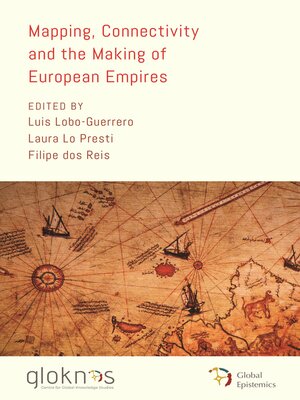Mapping, Connectivity, and the Making of European Empires
ebook ∣ Global Epistemics
By Luis Lobo-Guerrero

Sign up to save your library
With an OverDrive account, you can save your favorite libraries for at-a-glance information about availability. Find out more about OverDrive accounts.
Find this title in Libby, the library reading app by OverDrive.



Search for a digital library with this title
Title found at these libraries:
| Library Name | Distance |
|---|---|
| Loading... |
This volume seeks to collectively explore how maps can be used to understand the making of European empires, how the epistemological practices embedded in them can be approached to understand European imperial space-making, and how maps can be seen as representations of imaginaries of connectivity.
Rehearsing mapping's past and its multifarious relations with European imperial orders is not merely an historical exercise to contribute to a global history of cartography. What binds the several interventions is rather an awareness that looking at a particular moment of the past with composite methodologies and interdisciplinary gazes may harbour potential discoveries on the context-embedded relations between mapping, connectivity, and European empire to which we are not yet attuned. By exploring the imaginaries of the world in the mapping of Western modern empires, the book also links to the burgeoning literature on the history of international relations and empire. The emphasis on empires serves here as an important corrigendum for IR's state centrism and Eurocentrism and contributes to further erode the myth of Westphalia.
Rehearsing mapping's past and its multifarious relations with European imperial orders is not merely an historical exercise to contribute to a global history of cartography. What binds the several interventions is rather an awareness that looking at a particular moment of the past with composite methodologies and interdisciplinary gazes may harbour potential discoveries on the context-embedded relations between mapping, connectivity, and European empire to which we are not yet attuned. By exploring the imaginaries of the world in the mapping of Western modern empires, the book also links to the burgeoning literature on the history of international relations and empire. The emphasis on empires serves here as an important corrigendum for IR's state centrism and Eurocentrism and contributes to further erode the myth of Westphalia.







